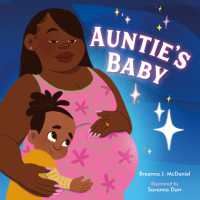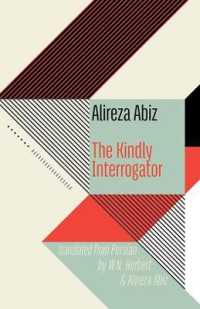- ホーム
- > 洋書
- > 英文書
- > Religion / Ethics
Full Description
The Caroline theologian Herbert Thorndike (1598-1672) was significant before and after the seventeenth-century Restoration of the Church of England. Thorndike's theological methodology engaged with ecclesiology, the government and ministry of the Church of England, the Eucharist and the Book of Common Prayer. This book features Thorndike's significant reflection on eucharistic theology, based on ancient realist models but recast for the present. The book argues that Thorndike's theological methodology was useful in its own time but also has currency for Anglican and ecumenical theology discourse, particularly in relation to ecclesiology, eucharistic theology and liturgical theology and practice.
Contents
Contents
Acknowledgements
Referencing of Thorndike's Work in This Book
Abbreviations Used in This Book for Referencing Thorndike's Works
1 Introduction
1.1 Starting at the End of Thorndike's Life: His Burial Place
1.2 Restoration of the Church of England?
1.3 Thorndike's Theological Works
1.4 Scholarship on Thorndike
1.5 Antiquity and the Present
1.6 The Method of This Book
1.7 The Plan of This Book
2 Who Was Herbert Thorndike?
2.1 Thorndike's Early Life
2.2 University of Cambridge
2.3 A Time of Deprivation
2.4 Restoration of the Church of England
2.5 Westminster Abbey
2.6 Thorndike's Final Days
2.7 Thorndike the Man
3 Thorndike's Terminology of the Eucharist
3.1 Eucharist or Thanksgiving
3.2 Eucharist as a Sacrifice of Praise and Thanksgiving
3.3 Eucharist as Covenant
3.4 The Supper of the Lord, the Sacrament of the Supper and the Breaking of the Bread
3.5 Sacramentum
3.6 The Mass
3.7 Communion
3.8 Liturgy
4 Scripture, Reason and Tradition in Thorndike's Works
4.1 Richard Hooker and Herbert Thorndike
4.2 Richard Hooker, His Laws and Thorndike
4.3 Thorndike and Scripture
4.4 Thorndike and Reason
4.5 Thorndike and Tradition
5 The Elements and the Body and Blood of Christ
5.1 The Elements Central to Consecration
5.2 The Natural Substances of the Elements Remain after Consecration
5.3 Change in the Elements by Consecration
5.4 The Worship of Christ in the Signs Is Not Idolatry
5.5 Thorndike Rejects Transubstantiation, Memorialism, Calvinism and Consubstantiation
6 Eucharistic Sacrifice
6.1 Introduction
6.2 In What Sense Does Thorndike See the Eucharist as a Sacrifice?
6.3 The Eucharist as a Sacrifice or Oblation Propitiatory and Impetratory
6.4 The Eucharist as the Sacrifice of Christ on the Cross
6.5 The Eucharist as a Living Sacrifice of the Self
6.6 The Breaking, Pouring, Distributing and Eating are in the Nature of a Sacrifice
6.7 Consent of the Catholic Church to the Propitiatory Sacrifice in the Eucharist
7 The Power of the Church in a Restored Church of England
7.1 Bishops and Presbyters/Priests and the Power of the Keys
7.2 The Power of the Church to Refuse Communion
7.3 The Power of the Church to Determine the Frequency of the Eucharistic Celebration
8 The Eucharist and the Book of Common Prayer in the Restored Church of England
8.1 Thorndike Prefers the Book of Common Prayer of 1549
8.2 The Forgiveness of Sins and the Placement of the Absolution in the BCP
8.3 The BCP Expresses Thanksgiving for and Blessing of God's Creation and Creatures
8.4 The Elements are Not for Receiving Alone
8.5 The Eucharist in the BCP Is Properly Called the Liturgy
8.6 The Eucharist in the BCP Is Intended to be Celebrated Regularly
8.7 Liturgical Revision of the BCP Suggested by Thorndike
8.8 The Eucharist as the Place for Instruction of the People
8.9 Thorndike Opposes the Use of the Decalogue in the Eucharist
8.10 Revision of the Prayer of Consecration to Make a More Expanded Thanksgiving with a Statement of Oblation
8.11 Thorndike Prefers a Set Form of Intercession Rather Than Free Prayer
8.12 The Memorial of the Dead in the Eucharist
8.13 The BCP More Than an Equivocation of Words
9 Early Interpreters of Thorndike and His Theological Methodology
9.1 Hamon L'Estrange (1605-1660)
9.2 Henry More (1614-1687)
9.3 William Falkner (d. 1682)
9.4 George Hickes (1642-1715)
9.5 Daniel Waterland (1683-1740)
9.6 The Nonjurors
9.7 Richard Baxter (1615-1691)
10 Nineteenth Century Interpreters of Thorndike and his Theological Methodology
10.1 Edward Pusey (1800-1882)
10.2 John Keble (1792-1866)
10.3 John Henry Newman (1801-1890)
10.4 William Goode (1801-1868)
11 Twentieth and Twenty-First Century Interpreters of Thorndike and His Theological Methodology
11.1 Thomas Lacey
11.2 George Addleshaw (1906-1982)
11.3 Clifford Dugmore (1909-1990)
11.4 Richard F. Buxton
11.5 Henry McAdoo (1916-1998) and Kenneth Stevenson (1949-2011)
11.6 Bryan Spinks
11.7 Paul Avis
11.8 Kenneth Fincham and Nicholas Tyacke
11.9 David J. Kennedy
11.10 Mark Langham (1960-2021)
11.11 Jean-Louis Quantin
11.12 Conclusion: Thorndike and Interpreters
12 Evaluating Thorndike and His Theological Methodology
12.1 Introduction
12.2 Thorndike, Toleration and Exclusive Attitudes
12.3 Antiquity, the Fathers and the Caroline Divines in the Anglican Tradition
12.4 Antiquity and the Present: Thorndike's Methodology
12.5 Thorndike and Truth as Incarnation and Eucharistic Repetition
12.6 Thorndike and Modern Liturgical Revision
12.7 Conclusion
Bibliography
Index







